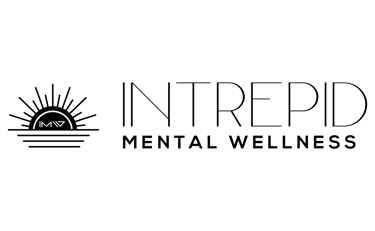Unlock a Brighter Mood: 5 Nutrients That Banish Depression
Are you feeling the blues more often than usual? Wondering how to boost your mood naturally? Dive into the world of essential nutrients and vitamins crucial in combating depression and promoting a positive state of mind.
DEPRESSIONANXIETYHOLISTIC MENTAL HEALTH
Medically Reviewed by Chelsey Lahr, PMHNP-BC
6/3/20247 min read


Are you feeling the blues more often than usual? Wondering how to boost your mood naturally? Dive into the world of essential nutrients and vitamins crucial in combating depression and promoting a positive state of mind.
Research shows that specific nutrients and vitamins can significantly impact your mental health, particularly in managing depression. Deficiencies in critical elements like vitamin D, folate, vitamin B12, iron, zinc, and selenium are more prevalent among individuals experiencing depression.
Vitamin C, known for its antioxidant properties, is essential for overall health and has also been studied for its potential benefits in alleviating symptoms of depression. Additionally, B vitamins, including thiamine (B1), riboflavin (B2), and B12, among others, are vital for maintaining mental well-being.
Understanding the importance of a balanced diet rich in these nutrients and considering proper supplementation can be a game-changer in your journey toward improved mental health. Stay tuned to explore five key nutrients and vitamins you should not neglect to combat depression and nurture a great mood.
1. Vitamin D for Mental Health
Vitamin D is crucial to our overall well-being, especially regarding mental health. This fat-soluble vitamin impacts mental health symptoms such as energy levels, motivation, and mood regulation. Understanding the significance of vitamin D in the body is imperative, as low vitamin D can increase your risk of experiencing depression symptoms.
Benefits of Vitamin D Supplementation
Vitamin D works harmoniously with other essential nutrients like Vitamin K2 and magnesium. Vitamin K2 aids in calcium regulation, ensuring it goes to the right places in the body. At the same time, magnesium activates vitamin D receptors, enhancing its effectiveness. This synergistic relationship among these nutrients ensures optimal mental health support.
Impact on Mental Health Symptoms
Studies have shown a potential link between vitamin D deficiency and mental health issues like depression and anxiety. By maintaining adequate vitamin D levels, individuals may experience improved moods, increased motivation, and enhanced overall mental well-being.
Caution in Supplementation
Before considering vitamin D supplementation, it is recommended to have your current vitamin D levels checked by your psychiatric nurse practitioner. This precautionary measure helps determine the appropriate dosage and reduces the risk of vitamin D toxicity. Consulting a healthcare professional ensures a tailored approach to meeting your mental health needs.
2. B Vitamins and Mental Clarity
B vitamins, including B9 (methylfolate) and B12, play a crucial role in maintaining mental clarity and overall brain function. They are vital for our well-being. Let's explore how B vitamins can positively impact mental clarity and mood.
Importance of B Vitamins
All B vitamins are essential for our bodies to function optimally. Vitamin B9, also known as methylfolate, stands out for its significance. B vitamins generally support mental health by enhancing focus, increasing energy levels, promoting mental clarity, and regulating mood. These vitamins are like superheroes, ensuring our brains operate at their best.
Role of B9 in Mental Clarity
Vitamin B9, particularly methylfolate, supports cognitive function and mental clarity. It aids in neurotransmitter synthesis, which is essential for communication between brain cells. Neurotransmitters include serotonin, our happy and calming chemical, and dopamine, our feel-good focus chemical. Adequate levels of B9 can help improve concentration, memory, and overall mental sharpness, combating feelings of brain fog and confusion.
Incorporating B Vitamins into Your Diet
While supplements are an option, getting B vitamins from natural sources is equally important. Foods like leafy greens, legumes, nuts, and whole grains are rich in these essential nutrients. Incorporating B vitamin-rich foods into your diet can naturally nourish your brain and enhance mental clarity.
Boosting Mood with B Vitamins
Beyond mental clarity, B vitamins can also contribute to a positive mood. Studies have shown a link between B vitamin deficiencies and symptoms of depression. Ensuring you meet your daily requirements of B vitamins can help uplift your spirits and promote emotional well-being.
3. Selenium and Iodine for Thyroid Function
Selenium and iodine are essential nutrients for optimal thyroid function and vital in supporting the health of your thyroid gland. If your thyroid is not working well, symptoms of hypothyroidism could include depression, fatigue, constipation, feeling cold, and weight gain. Let's explore how these two nutrients contribute to maintaining a balanced thyroid and overall well-being.
Importance of Iodine
Iodine is a crucial element needed for the synthesis of thyroid hormones. Without sufficient iodine, the thyroid gland cannot produce enough thyroid hormones, leading to potential thyroid disorders. One study highlighted the significance of iodine in supporting healthy hormone production, emphasizing the essential nature of this nutrient for thyroid health.
Benefits of Selenium
Selenium, on the other hand, is vital for thyroid function as it plays a key role in regulating thyroid hormone metabolism. Research has shown that selenium deficiency can impact thyroid hormone synthesis and secretion. Ensuring an adequate selenium intake can support your thyroid's optimal performance and overall well-being.
When iodine deficiency coincides with selenium deficiency, it becomes crucial to address both nutrient shortages to restore thyroid balance effectively. Incorporating foods rich in selenium and iodine into your diet can help maintain a healthy thyroid and prevent potential imbalances that could affect your mood and energy levels.
4. Omega 3 Benefits
Omega-3 fatty acids are essential nutrients crucial in maintaining physical and mental well-being. The body does not produce these fats, so they must be obtained through diet or supplements. The benefits of omega-3 fatty acids cannot be overstated when it comes to combating depression and boosting mood.
Mood Enhancement
Studies have shown that omega-3 fatty acids can significantly improve symptoms of depression. These essential fats help regulate neurotransmitters in the brain, such as serotonin and dopamine, which are critical players in mood regulation. By incorporating omega-3 into your diet, you may experience a positive impact on your overall emotional well-being.
Inflammation Reduction
Inflammation in the body has been linked to depressive symptoms. Omega-3 fatty acids possess anti-inflammatory properties, which can help reduce inflammation and alleviate symptoms of depression. By incorporating foods rich in omega-3 or supplements into your routine, you may notice decreased feelings of sadness and hopelessness.
Brain Health
Omega-3 fatty acids are known to support brain health and cognitive function. These fats are essential for proper brain development and function, making them vital for maintaining mental clarity and focus. By ensuring an adequate intake of omega-3, you can support your brain health and potentially reduce the risk of cognitive decline.
Holistic Well-Being
Considering the holistic approach to mental health, omega-3 fatty acids offer benefits beyond alleviating depression symptoms. From promoting cardiovascular health to supporting skin health, omega-3 plays a multifaceted role in overall well-being. By incorporating sources of omega-3, such as fatty fish, flaxseeds, or walnuts, into your diet, you can nourish both your body and mind.
5. Iron and Oxygen Circulation
Iron plays a crucial role in the circulation of oxygen throughout our body. Understanding the relationship between iron levels and emotional well-being is essential when it comes to addressing depression. Research suggests that iron deficiency can lead to symptoms that mimic depression, such as fatigue, brain fog, and changes in sleep patterns.
Impact on Emotional Behavior
Studies have shown that iron overload or deficiency can affect emotional behavior. Iron plays a role in mood regulation, and disruptions in iron levels can impact anxiety-like behaviors and mood stability. Ensuring adequate iron levels is vital for maintaining emotional balance and overall well-being.
Importance of Iron for Oxygen Transport
Iron is a key component in transporting oxygen in the bloodstream. Adequate iron levels are necessary for proper oxygen circulation to all body parts, including the brain. This oxygen transport is crucial for optimal brain function and mental health.
Managing Iron Levels
It is important to have your provider check iron levels before considering iron supplementation. Additionally, women are more prone to low iron levels due to menstruation, emphasizing the need for monitoring iron status. Conversely, high iron levels can also have detrimental effects on mental health. Symptoms of high iron levels should not be overlooked and require medical attention.
Link Between Iron Deficiency and Depression
Anemia, often associated with iron deficiency, has been linked to mental health conditions like depression and anxiety. The lack of oxygen circulation due to iron deficiency can contribute to feelings of fatigue and low mood. Addressing iron levels can be a crucial step in managing symptoms of depression.
Conclusion
Maintaining optimal levels of critical nutrients and vitamins is vital for managing depression and fostering a positive mood. Nutrients such as Omega-3 fatty acids in fish, chia seeds, and walnuts can enhance mood stability and cognitive function. Protein, B vitamins, vitamin D, magnesium, zinc, selenium, iron, and omega-3 fatty acids are essential for overall mental well-being.
It's important to consult your psychiatric nurse practitioner before incorporating supplements into your routine to ensure they align with your needs. Remember, a holistic approach to mental health treatment includes proper nutrition, exercise, therapy, and self-care practices. By prioritizing your overall well-being and nourishing your body with the proper nutrients, you can take positive steps towards managing depression and enjoying a more fulfilling life.
If you or a loved one is struggling with depression, we would be honored to partner with you in your journey — contact us to learn more.
***Content on this website is not considered medical advice. Please consult with a licensed health care provider before making any medical or lifestyle changes***
References:
We Are What We Eat: Unraveling the Connection Between Food and Our Wel. https://vukoo.com/blogs/mindful-reads/we-are-what-we-eat-unraveling-the-connection-between-food-and-our-well-being
Embracing Self-Care: A Vital Practice for Daily Well-being. https://www.kneaded-tranquility.com/post/embracing-self-care-a-vital-practice-for-daily-well-being
B Vitamins & Your Health. https://www.trinitychirogr.com/post/b-vitamins-your-health
The Power of B Vitamins: How They Can Help You Cope With Stress - Henof. https://henof.com/the-power-of-b-vitamins-how-they-can-help-you-cope-with-stress/
What Are The Health Benefits Of Brazil Nuts? – NutritionFact.in. https://www.nutritionfact.in/faqs/what-are-the-health-benefits-of-brazil-nuts-2
How can Omega-3 fatty acids help control inflammation?. https://www.drprashantpervatikar.com/post/how-can-omega-3-fatty-acids-help-control-inflammation
The Benefits of Using Oils Rich in Omega-3 Fatty Acids for Heart Health and Brain Function. https://www.ohchinhing.com.sg/post/the-benefits-of-using-oils-rich-in-omega-3-fatty-acids-for-heart-health-and-brain-function
Adequate Vitamin D Levels Are Critically Important For The Brain And Body Here’s the Fascinating 15 Transformations That Will Occur When You Start Incorporating it into Your Daily Regimen - Green Living Tribe. https://greenlivingtribe.com/adequate-vitamin-d-levels-15/
Zielińska, M., Łuszczki, E., & Dereń, K. (2023). Dietary Nutrient Deficiencies and Risk of Depression (Review Article 2018–2023). Nutrients, 15(11), 2433.
Providing compassionate holistic mental health care to Colorado and Arizona.
Phone: Colorado & Arizona 719-505-4404
Copyright © 2018-2025 Intrepid Mental Wellness, PLLC. All rights reserved | Privacy Policy | Terms & Conditions


Content on this website is not considered medical advice. Please consult with a licensed health care provider before making any medical or lifestyle changes.
Holistic mind & body supplements & products
Contact |
Shop |
Fax: 720-899-3575